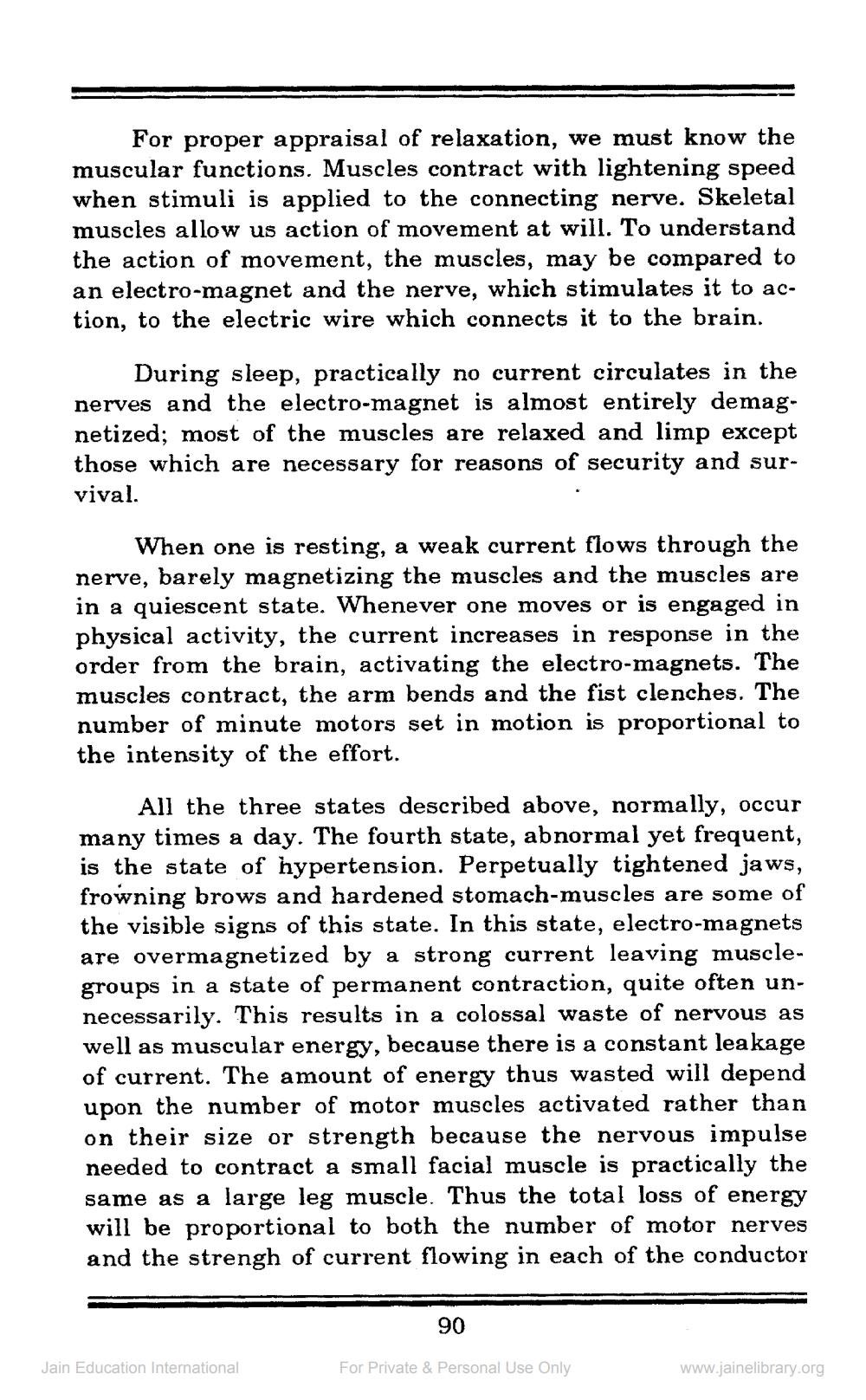________________
For proper appraisal of relaxation, we must know the muscular functions. Muscles contract with lightening speed when stimuli is applied to the connecting nerve. Skeletal muscles allow us action of movement at will. To understand the action of movement, the muscles, may be compared to an electro-magnet and the nerve, which stimulates it to action, to the electric wire which connects it to the brain.
During sleep, practically no current circulates in the nerves and the electro-magnet is almost entirely demagnetized; most of the muscles are relaxed and limp except those which are necessary for reasons of security and survival.
When one is resting, a weak current flows through the nerve, barely magnetizing the muscles and the muscles are in a quiescent state. Whenever one moves or is engaged in physical activity, the current increases in response in the order from the brain, activating the electro-magnets. The muscles contract, the arm bends and the fist clenches. The number of minute motors set in motion is proportional to the intensity of the effort.
All the three states described above, normally, occur many times a day. The fourth state, abnormal yet frequent, is the state of hypertension. Perpetually tightened jaws, frowning brows and hardened stomach-muscles are some of the visible signs of this state. In this state, electro-magnets are overmagnetized by a strong current leaving musclegroups in a state of permanent contraction, quite often unnecessarily. This results in a colossal waste of nervous as well as muscular energy, because there is a constant leakage of current. The amount of energy thus wasted will depend upon the number of motor muscles activated rather than on their size or strength because the nervous impulse needed to contract a small facial muscle is practically the same as a large leg muscle. Thus the total loss of energy will be proportional to both the number of motor nerves and the strengh of current flowing in each of the conductor
90
Jain Education International
For Private & Personal Use Only
www.jainelibrary.org




